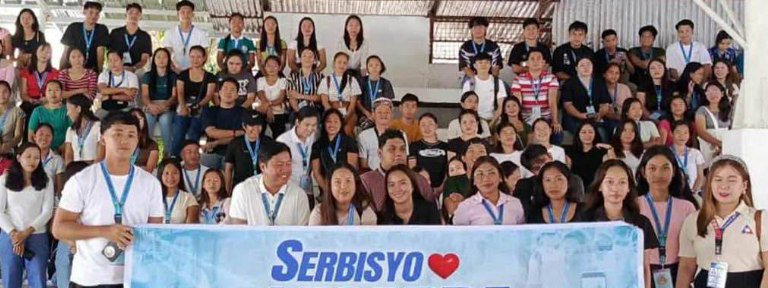Upholding the Integrity of the Government Internship Program (GIP)
A Career Gateway, Not a Political Prize
THE EDITORIAL CHEESE
Patrick Petinglay Villavert
11/4/20253 min read


The Government Internship Program (GIP), administered by the Department of Labor and Employment (DOLE) in the Philippines, is one of the government’s flagship initiatives designed to empower young Filipinos by providing them with practical work experience and a path toward a career in public service. As a vital component of the government’s youth development agenda, its operational integrity must remain strictly non-partisan.
What is the GIP Program?
The GIP aims to provide beneficiaries, particularly the poor and indigent youth, with an opportunity to demonstrate their talents and skills in public service. It functions as an on-the-job training program within national and local government offices, public schools, and public hospitals. Interns are typically engaged for a minimum of three (3) months to a maximum of six (6) months. The tasks assigned are generally supportive and non-highly technical, such as assisting with data encoding, community profiling (e.g., for child labor or senior citizens), and providing general office support.
Eligibility and Stipend
To qualify for the program, applicants must generally be:
Aged 18 to 30 years old (with exceptions for those over 30 in calamity-stricken areas).
At least a high school graduate or technical-vocational graduate.
Preferably without prior work experience.
Priority is given to those who can submit a Certificate of Indigency from their Barangay.
GIP beneficiaries receive a stipend, which is a significant component of the program. The official DOLE guidelines state that the stipend should be equivalent to 75% of the highest prevailing minimum wage in the Region where the intern is assigned. However, in practice, some DOLE regional offices or partner agencies have been documented to pay the full minimum wage for the region. For instance, in May 2025, reports noted that interns in the Ilocos Region were slated to receive $\text{PHP468}$ per day, which was the regional minimum wage. This amount is directly proportional to the prevailing daily minimum wage in the respective area of assignment. Interns are also covered by Government Service Insurance System (GSIS) insurance.
The Application and Selection Process
The application process is designed to be accessible and merit-based, ensuring that the opportunity goes to deserving individuals, not political appointees.
Application Submission: Interested applicants submit the required documents—including a filled-out GIP Application Form, Transcript of Records or Certificate of Graduation, and Certificate of Indigency—to the nearest Public Employment Service Office (PESO) in their Local Government Unit (LGU) or a DOLE Regional/Field Office.
Screening and Validation: DOLE and its partner agencies screen the applicants based on the required qualifications, including the validation of documents like the Certificate of Indigency.
Interview and Selection: Qualified applicants undergo an interview, after which the implementing DOLE office makes the final selection of interns.
Deployment: Selected interns sign an agreement and are deployed to their partner government agency, school, or hospital.
The Inappropriateness of Politician Presence in Payout Events
One area that has drawn continuous scrutiny is the practice of having elected politicians, such as Senators, Congressmen, or Mayors, preside over GIP payout and distribution events.
The GIP is a national government program funded by the Filipino taxpayer and administered by a non-partisan, technical agency (DOLE). The inclusion of a politician in a prominent, congratulatory role at the moment interns receive their hard-earned stipends and insurance is often misconstrued as politicizing the event.
The primary concerns are:
Political Patronage: A politician’s high-profile presence creates the impression that the stipends are a personal gift or a favor from their office, rather than a legitimate entitlement under a government program. This subtly converts a taxpayer-funded entitlement into a tool for political goodwill, especially in the lead-up to an election.
Using Public Funds for Personal Promotion: When huge tarpaulins or backdrops feature the politician's face, name, and electoral slogans alongside the GIP banner, it becomes a clear use of a public service event to further a politician's personal or party agenda.
Undermining Meritocracy: The presence of politicians, especially those who may have been involved in endorsing applicants outside the official DOLE-PESO channel, can cast doubt on the merit-based nature of the selection process. This suggests the opportunity may be based on political connection ('padrino' system) rather than genuine need and eligibility.
To preserve the GIP’s integrity as a non-partisan career development program, all public servants—politicians and civil servants alike—must adhere to strict political neutrality. Payouts should be handled routinely by DOLE or the assigned financial partner (e.g., LBP or a remittance center) to ensure that the program remains focused on its true beneficiaries: the Filipino youth aiming to serve the public.
